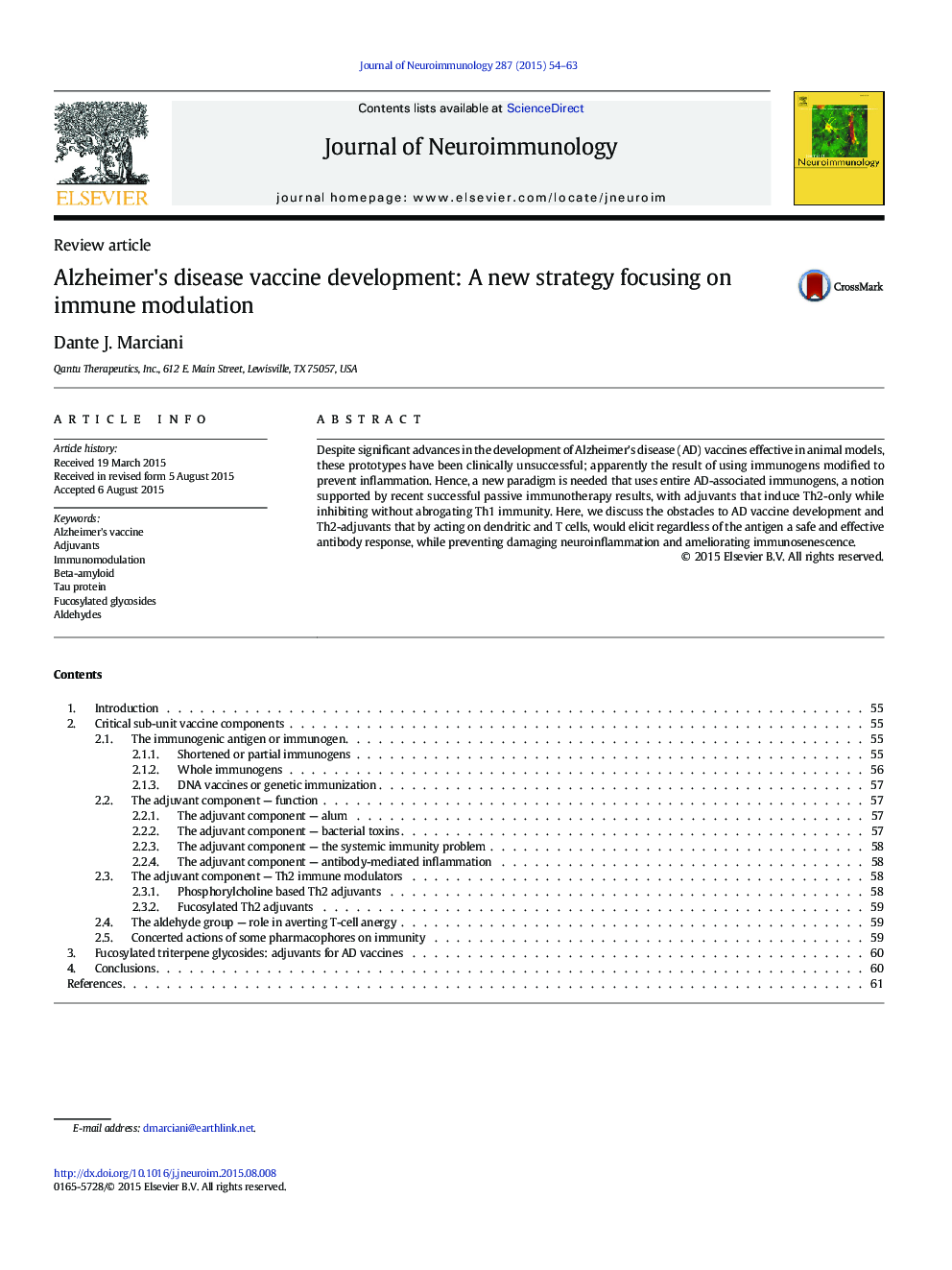| Article ID | Journal | Published Year | Pages | File Type |
|---|---|---|---|---|
| 3063896 | Journal of Neuroimmunology | 2015 | 10 Pages |
•An Alzheimer's disease vaccine with immunogens carrying both B and T cell epitopes•The requirement for vaccine adjuvants that induce Th2 and inhibit Th1 immunity•A new Th2 adjuvant that acts on both dendritic and T cells, preventing anergy•Role of fucose in biasing immunity to Th2 and preventing Th1 inflammatory response
Despite significant advances in the development of Alzheimer's disease (AD) vaccines effective in animal models, these prototypes have been clinically unsuccessful; apparently the result of using immunogens modified to prevent inflammation. Hence, a new paradigm is needed that uses entire AD-associated immunogens, a notion supported by recent successful passive immunotherapy results, with adjuvants that induce Th2-only while inhibiting without abrogating Th1 immunity. Here, we discuss the obstacles to AD vaccine development and Th2-adjuvants that by acting on dendritic and T cells, would elicit regardless of the antigen a safe and effective antibody response, while preventing damaging neuroinflammation and ameliorating immunosenescence.
